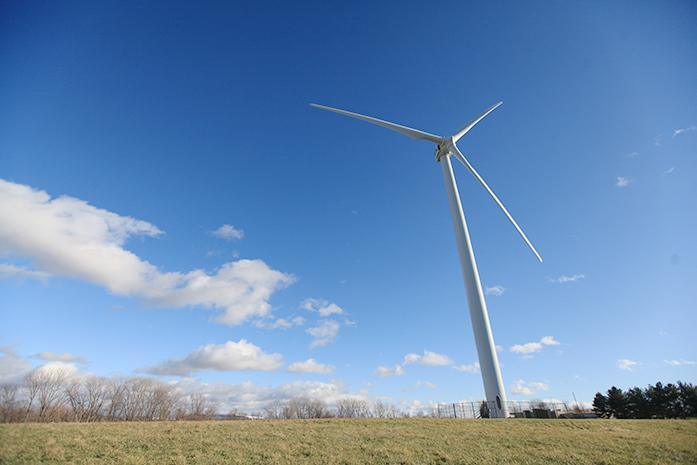The global community is shifting toward smarter energy, but the GOP tax plan will be a step in the wrong direction.
By Jacob Prall
[email protected]
Beneath the Arc de Triumph, electric cars zip down the Champs-Élysées. From the London Eye, thousands of energy-efficient vehicles are seen humming quietly from street to street. In the crowded streets of Beijing, the thick smog clears for a moment, sun shining through on a city of new, clean technologies. These scenes of a greener world are not here today, but they are right around the corner.
The global community is undergoing a great shift toward electric vehicles and renewable energy. And why wouldn’t it be? Climate change looms large on the horizon, magnifying storms and intensifying droughts. At the same time, renewable-energy sources are producing electricity at far cheaper rates than their polluting cousins, coal and natural gas. There isn’t a reason not to begin a conversion to clean technologies, and governments are leading the transition to low-carbon economies. France and Great Britain are phasing out the sale of gasoline-powered vehicles, industrial nations are doubling down on investments in renewable-energy plants, and the world is becoming a cleaner, more efficient place. The world, that is, outside the United States.
President Trump and his administration’s stance on clean energy is well-known. The U.S. withdrawal from the Paris Climate Accord is a devastating step backwards, an outright refusal to take climate change seriously. Now, the Executive is not the only branch of government targeting a sustainable future in America — the new GOP tax proposals take aim at renewable, clean energies.
RELATED: Senate, House propose tax reform
The GOP tax bill will stunt the growth of green energies and technologies. The elimination of tax credits for electric-car owners will slow the growth in market share of electric cars in the U.S., discouraging car manufacturers from building more cars and developing better systems. The bill also repeals an inflation increase for renewable-energy production tax credits, which will lead to an increase in taxes on such power sources as wind, solar, and biomass. An increase in taxes on these sources of energy will slow technological development and leave the United States stuck with a stagnant, polluting energy infrastructure quickly being abandoned by the rest of the world.
The Republican tax proposals not only spell trouble for our environment but for the Iowa economy. Last week, MidAmerican Energy announced it will pour nearly $1 billion into revamping its oldest wind turbines in Iowa. Wind energy is incredibly important in Iowa; according to the Governor’s Wind Energy Coalition, wind energy could make up 40 percent of energy consumption in Iowa by 2020. The Iowa economy benefits from this cheap source of energy, which creates jobs and reduces carbon emissions. Iowa is one of the leading states in the U.S. in wind-energy production and will therefore be hit hardest by the proposed changes in the tax code. Higher taxes means less innovation and investment in Iowa’s clean-energy future.
The new GOP tax proposal charts out a future of technological obscurity and environmental ruin in the United States. Iowans who care about the environment, economy, or both should make their opinions known to their congressional delegation.



